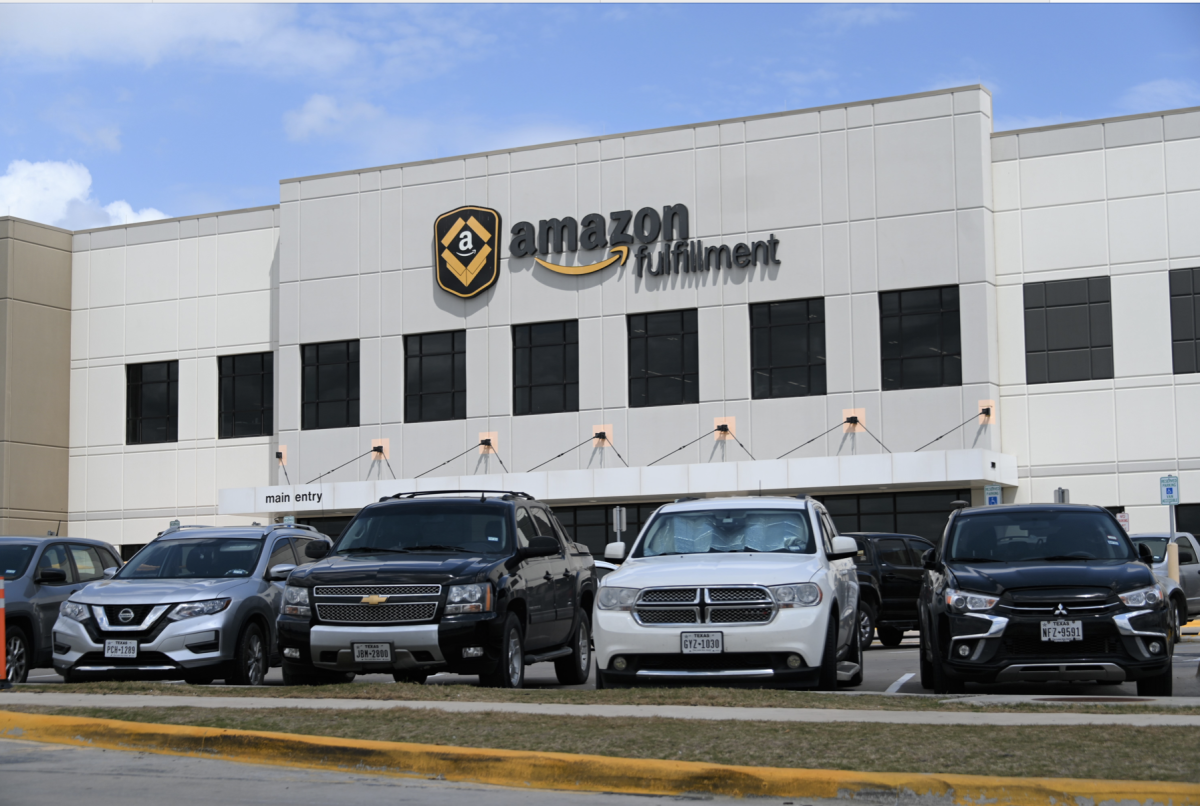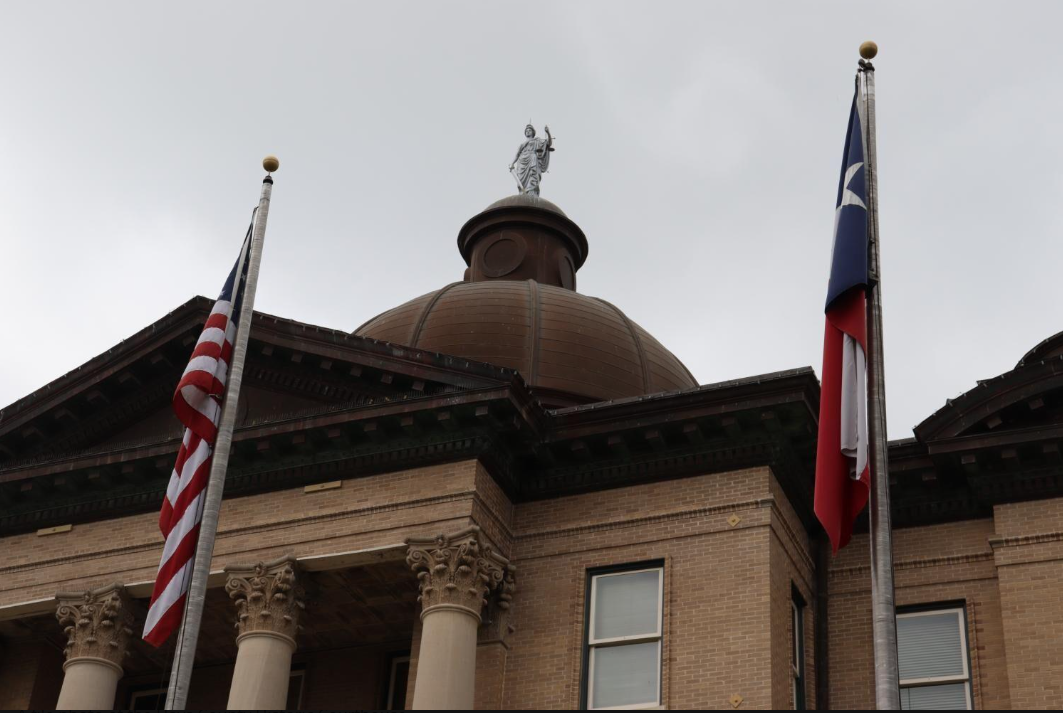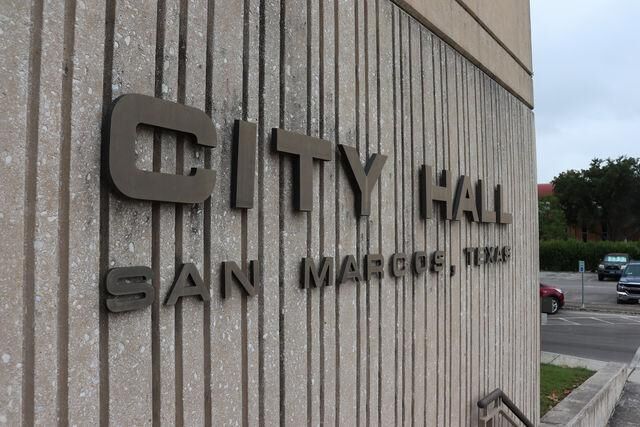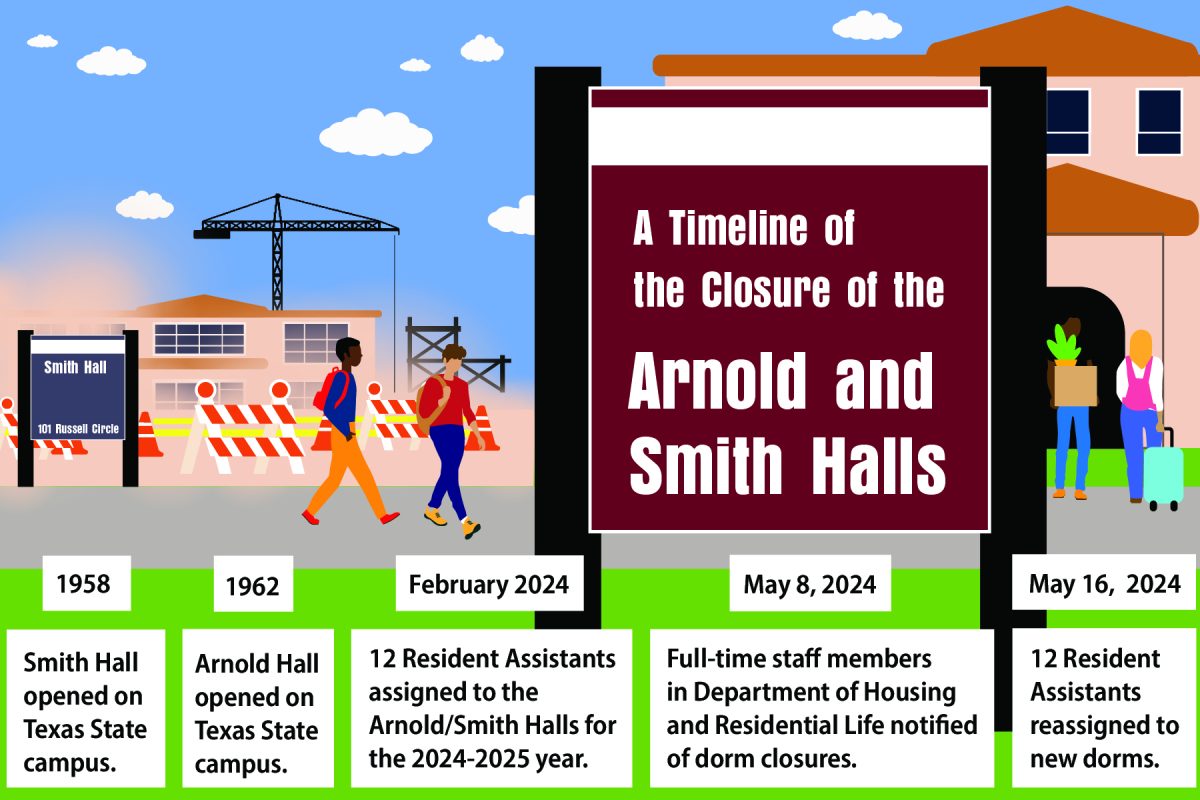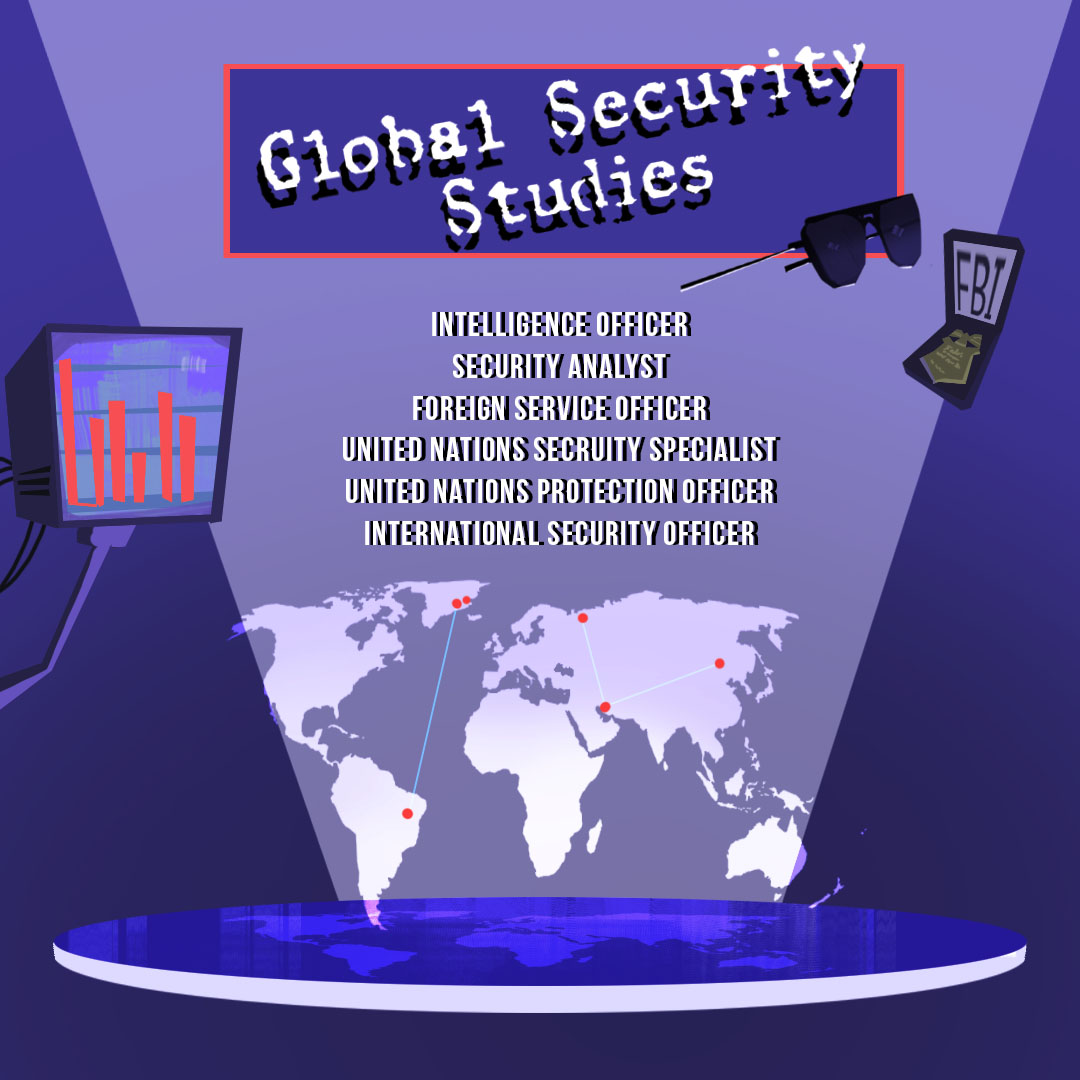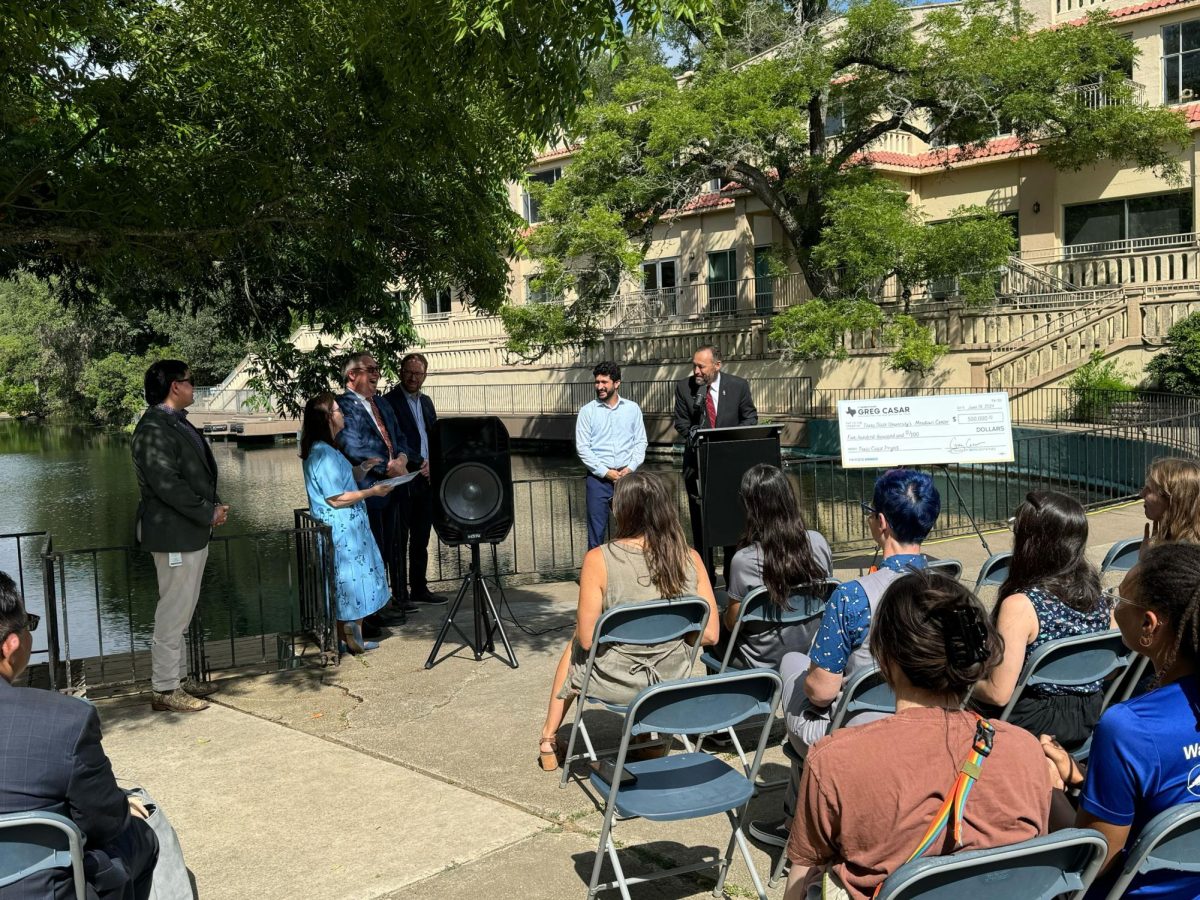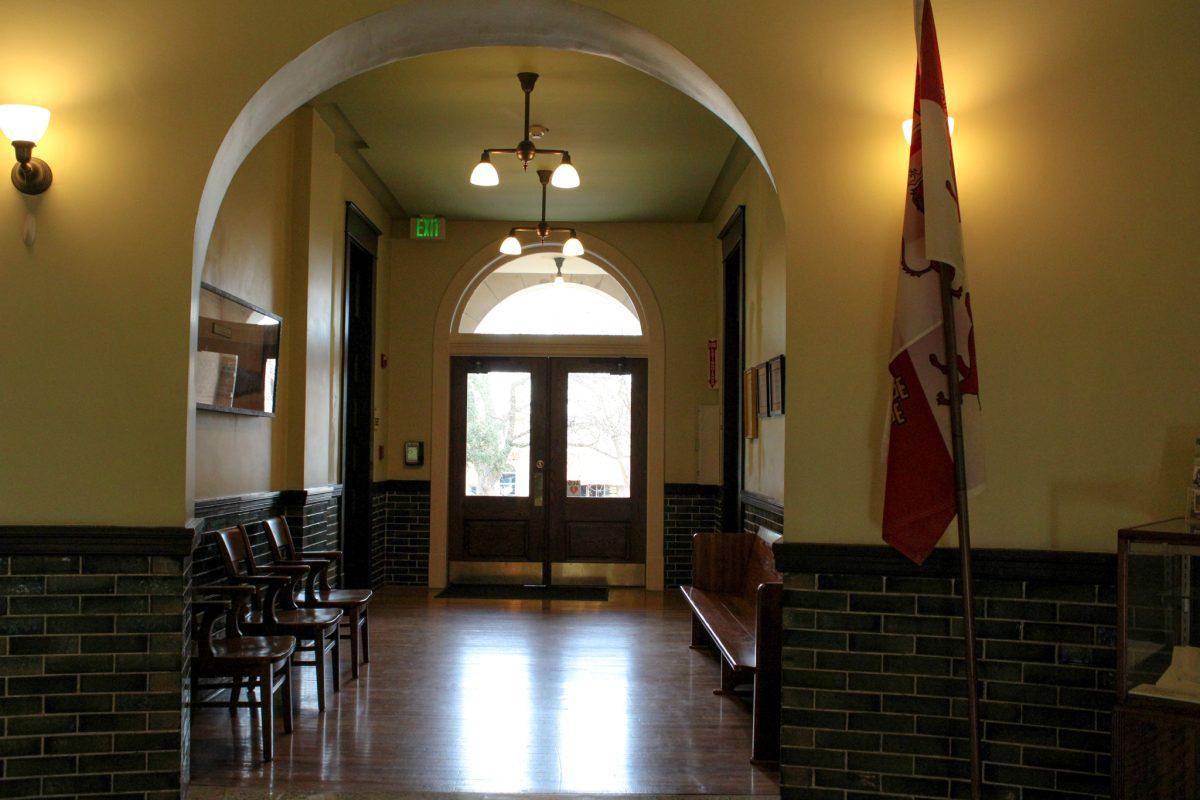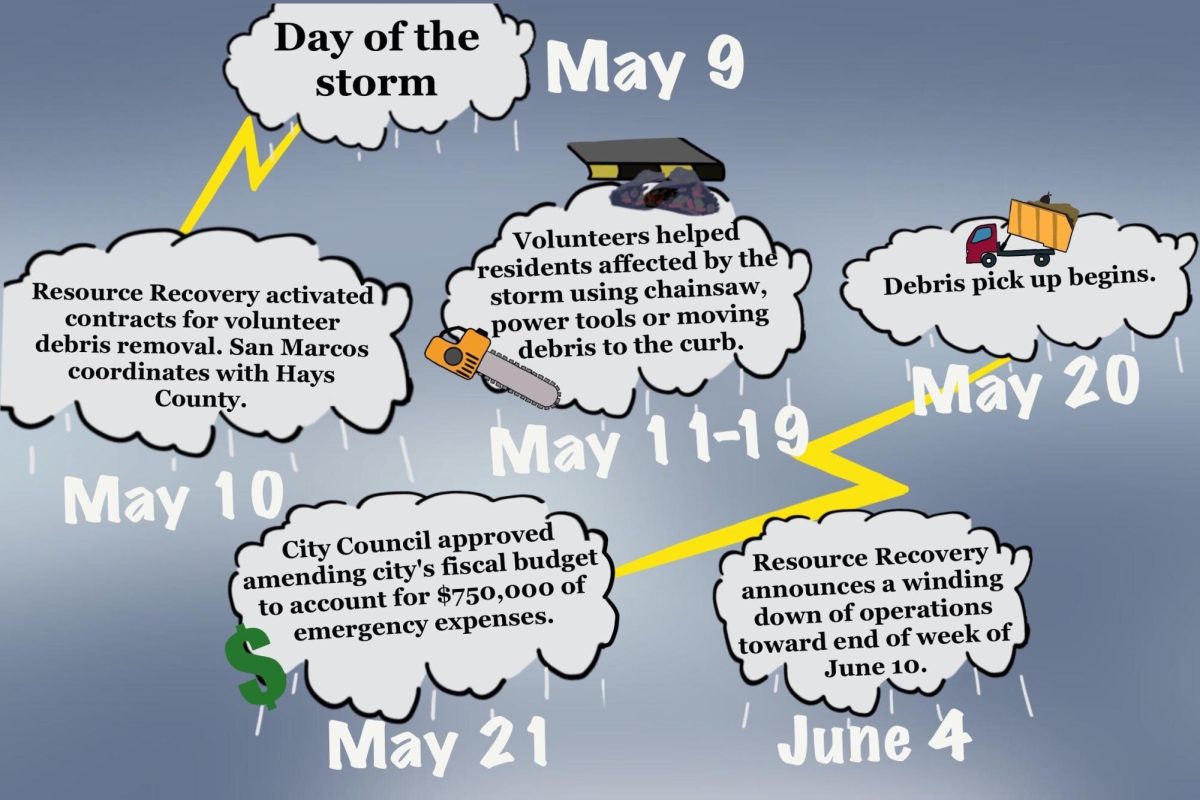A new Amazon facility will soon make its way to San Marcos, with hopes of creating more jobs and revenue in a city with over 100 years of long-running family trees and prosperous small businesses. However, residents are on the fence about whether a town with such history needs a trillion-dollar corporation to sustain economic growth.
Amazon’s new delivery station, set to reside at 1346 Fortuna Road, is expected to arrive by the end of 2021. The 1.1 million square foot delivery station will deliver larger luxury items, such as couches and televisions, to homes. With the delivery station, the company will have two facilities in town, the other being its fulfillment center located at 1401 E. McCarty Lane.
Residents like Jessica Robinson believe the increase in warehouses in addition to Texas State has made it more expensive for locals to reside in the town.
Robinson, a mother and San Marcos native, purchased her first home in San Marcos in 2008 for $117,000 before deciding to move due to a change in her marital status. She says the same home now goes for twice the price.
“I feel like local people who have families here, who have not just their own children but have their aunts, their uncles or cousins, there’s a lot of us here where, you know, it’s people I grew up with going to high school and a lot of them don’t live here anymore but did come back to visit those aunts, uncles, parents, and it’s great to have these new businesses to have more to do, but as far as it being family-friendly, [San Marcos has] completely lost its appeal,” Robinson says.
“I just feel like [Amazon is] too big or risking too much for such a small, beautiful, comfortable town that it used to be…We’ve just lost so much comfort to try to go with this growth.”
Robert Dorsey, a local real estate agent and Texas State alumnus, has lived in San Marcos for 13 years and believes inviting more companies to the city is making San Marcos a more attractive place to live. He says bigger businesses provide students in the area with an opportunity to work and stay in San Marcos.
“I think the main thing that the city is attempting to do right now is to retain the talent that the university is actually putting out,” Dorsey says. “For a long time, we were just a pass-through city…We were building and creating all of these amazing individuals, and then they were just basically moving back home or to the city that they came from.”
Dorsey says the jump in traditional housing prices is not attributed to the establishment of company warehouses but rather the supply and demand for homes. Parents of college students look to purchase investment properties in the area and investors look for rental properties to attract bigger corporations, he says.
“We have enormous demand for everybody moving here,” Dorsey says. “It’s just created this huge demand for housing, and it’s not something that can be quickly fixed, so we have all these people trying to move to this area, currently, but really, like, very small inventory of homes to sell them.”
The Greater San Marcos Partnership (GSMP), a nonprofit economic development organization that represents the city and assists companies interested in joining the San Marcos community, has been working with Amazon as it prepares to launch its new delivery station.
Jason Giulietti, president of the GSMP, says the goal in partnering with any company is to better the community. He believes attracting large businesses will result in more jobs and gives those visiting or temporarily residing in San Marcos more reason to stay.
“Our goal at the partnership really is driven by bringing better, high-quality jobs to our residents,” Giulietti says. “If we can provide and attract good jobs to our community, our residents will only be better, because they’re now given an opportunity to get, maybe, hopefully, a better paying job, one that has better benefits, one that has better opportunity, on top of community partners.”
Giulietti says GSMP is aware of the increasing worries of residents and plans to confront the issue by implementing its “Five-year Economic Development Strategy,” a guide to how the city plans to manage its growth over the next four years.
“10 years ago, [San Marcos] did not look like it does now, where there’s very little distinction from one community to the next because of the growth,” Giulietti says. “So, we recognize that, we understand that, but we also are realistic in the sense that no matter how much we like or dislike it, it’s going to continue to happen and actually probably faster than expected. So, we need to embrace it, and I hate to say that because [for] some folks I know that’s not what they want to hear. For many, it is what they want to hear, and it is beneficial for the quality of life because by having that level of growth, it creates more opportunities.”
Amazon workers protesting and reports of unsatisfactory working conditionssurfacing have created cause for concern about what more of the company’s presence would mean for San Marcos. But Giulietti’s experiences “with Amazon [have] been really positive,” he says.
“Every employee I speak to, whether it’s in the facility or quite honestly outside the facility just randomly meeting people, they are just, they really rave about the organization,” Giulietti says. “So, I can’t really give any credence to the negative stories out there because my personal experience with our local Amazon facilities is nothing but positive.”
Hayden Hartrick, a film junior at Texas State, worked at Amazon’s distribution station in Kyle for almost four months. The company’s starting pay of $15 influenced his decision to work there. However, the longer he worked with the company, the more difficult it was to navigate both his personal life and job.
“The job started out like every new job does, where it’s kind of exciting to be doing this stuff, then it quickly became an ominous thing every time I would go in it…I felt like a robot,” Hartrick says. “I ended up leaving because, first of all, the work was grating on me as a person, and I would come out of every shift feeling like a shell of a [person]…I think some of that comes from me just not being the type of person to enjoy monotonous work.”
“If I were to work at Amazon for a while, I would have a better shot at finding jobs that also pay $15 an hour, that aren’t as intensive and aren’t as robotic,” Hartrick adds. “[The pay] definitely kept me there for a while, and I know people that I think still work there, and that’s the reason they’re staying is because it pays well.”
City Council member Maxfield Baker says he is uncomfortable with Amazon’s presence due to the company’s leverage on small businesses.
“While they do offer a more competitive wage than a lot of jobs in San Marcos, there are a lot of negative side effects, I think, as well as just the reality that Amazon, being one of the largest companies in the world, could afford to pay much more than a minimum living wage of $15 an hour,” Baker says.
Baker appreciates that Amazon is paying workers higher than minimum wage. But inviting companies to reside in San Marcos cannot fix the city’s economy, he says.
“We are in the middle of our budget process right now, and the hole in our budget, in general, is such that this project of Amazon is not going to seal that, you know,” Baker says. “The idea that we’re going to keep bringing in these larger and larger companies and eventually create this positive budget and then be able to lower taxes. I think [it] is unrealistic.”
City residents debate need for Amazon delivery station expected by year’s end
April 7, 2021
Donate to The University Star
Your donation will support the student journalists of Texas State University. Your contribution will allow us to purchase equipment and cover our annual website hosting costs.











